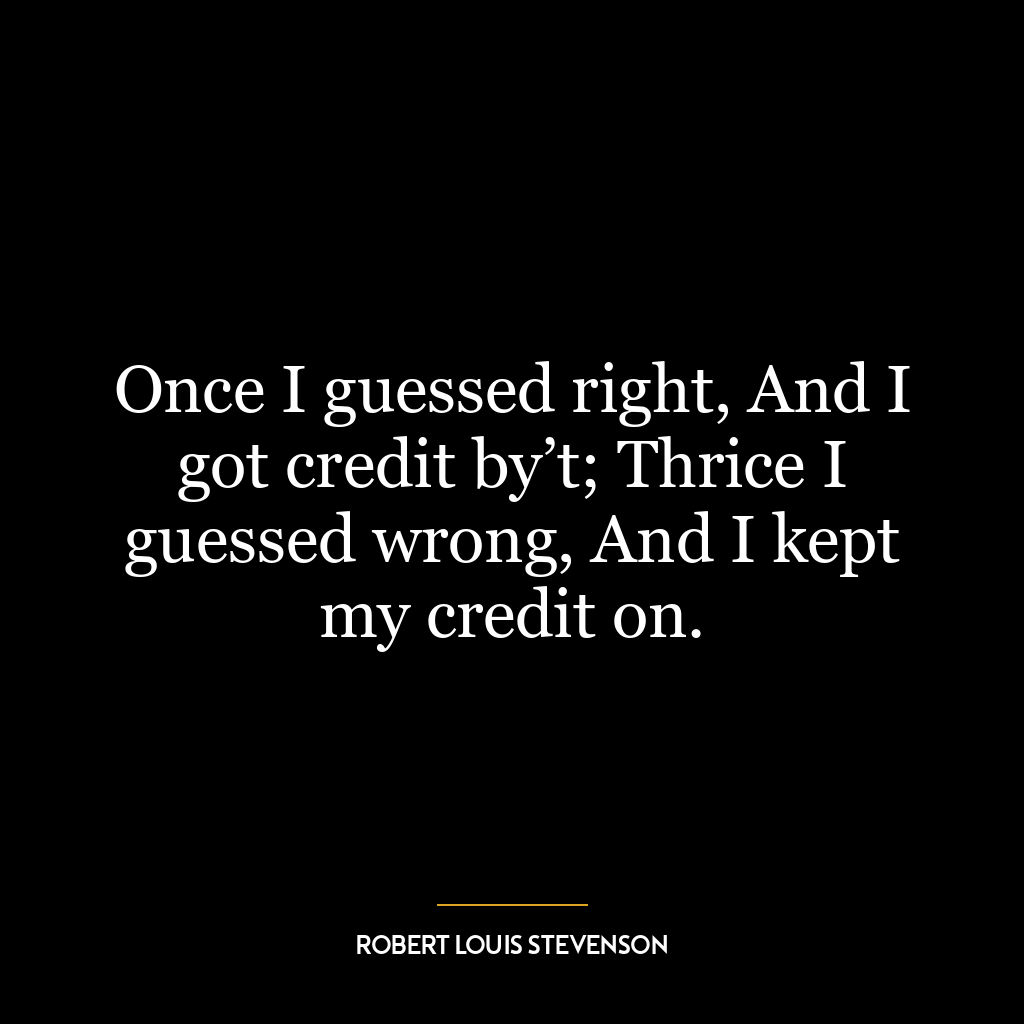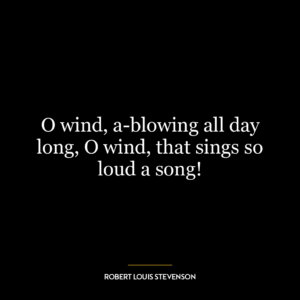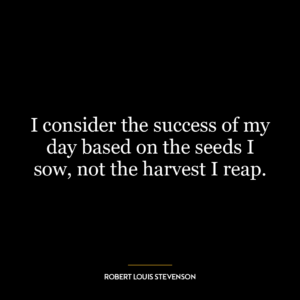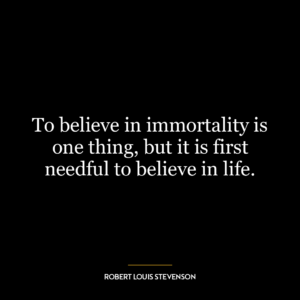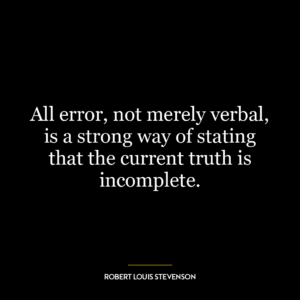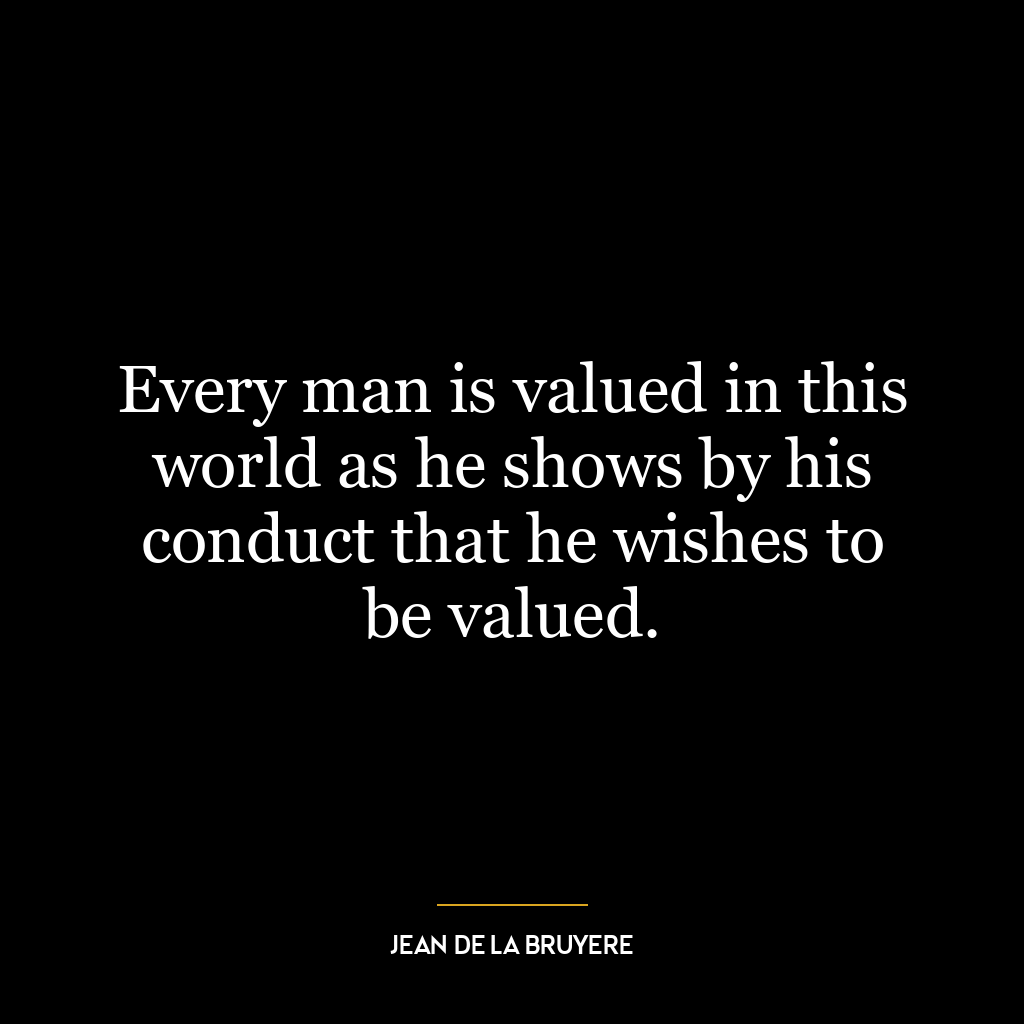Once I guessed right, And I got credit by’t; Thrice I guessed wrong, And I kept my credit on.
This quote speaks to the notion that success and failure are not always accurately represented or recognized. The speaker in the quote "guessed right" once and was given credit for it, implying that they were praised or acknowledged for their success. However, they "guessed wrong" three times and yet their credit remained intact, suggesting that their failures went unnoticed or were ignored.
The quote is a commentary on the arbitrary nature of success and failure. It suggests that we often receive praise or criticism not based on our actual merits or faults, but rather on what others perceive or choose to acknowledge. This can lead to a skewed understanding of our own abilities and worth, as we may come to define ourselves based on others’ perceptions rather than our own actions and experiences.
In today’s world, this quote can be applied to various fields. In the corporate world, for instance, an employee might receive a promotion based on a single successful project, while their multiple failures are overlooked. Conversely, someone might be overlooked for a promotion because their successes go unnoticed, while their failures are blown out of proportion.
In terms of personal development, this quote can serve as a reminder to not let others’ perceptions define our self-worth or abilities. It encourages us to take a more balanced view of our successes and failures, acknowledging both without letting either skew our self-perception. It also emphasizes the importance of self-awareness and self-evaluation, as these are more reliable measures of our abilities and worth than others’ perceptions.

